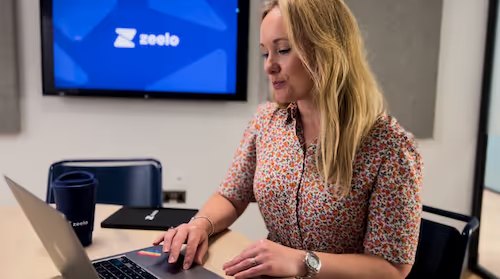Getting Parents On Board With Zeelo!
.avif)
Establishing a home-to-school transportation service is undoubtedly a commendable initiative. However, its success hinges not only on the provision of this service but also on garnering enthusiastic support from parents who opt to utilise it for sending their children to school. Without such collaboration, the service may encounter challenges such as low occupancy rates and the inefficiency of dead mileage – a situation that represents a missed opportunity.
To foster increased utilisation and optimise ridership, it is imperative to proactively engage parents and address their concerns. In light of this, we have compiled a comprehensive list of ten conversation topics that schools can utilise to engage parents effectively. These discussions are designed not only to alleviate any apprehensions but also to instil confidence and peace of mind within the parent community:
Address Concerns: Some parents may have concerns about the safety of the school bus or may be worried about their child's comfort during the ride. Address these concerns by explaining the safety protocols that are in place, such as three-point seat belts, trained vetted and experienced drivers and the rigorous onboarding and live tracking functionality. You can also highlight the features of modern school buses/coaches, such as air conditioning and comfortable seats. It's not just about getting to school; it's about getting there safely and comfortably.
Discuss The Cost: Driving a child to school can be expensive, particularly when you consider the cost of fuel, wear and tear on the car, parking fees and most of all, your precious time. In contrast, taking the bus is typically much more affordable. The fuel efficiency of a standard passenger car carrying a single individual is 25 passenger miles per gallon, while a conventional bus at a full capacity of 70 (including seated and standing passengers) achieves 163 passenger miles per gallon.
Emphasise The Environmental Benefits: Taking the bus is also better for the environment than driving a car. By reducing the number of cars on the road, we can help to reduce air pollution and our carbon footprint. When you look at fuel savings, such a transition results in significant reductions in CO2 emissions. For every 100 passenger miles, a solo passenger car emits 40 kg of CO2, compared to just 6.3 kg for a fully occupied bus.
Highlight The Convenience: Taking the bus can be a convenient option for parents, particularly if they work or have other commitments that make it difficult to drop off and pick up their child from school. Zeelo’s mobile app allows parents/students to manage their bookings, view schedules, and receive notifications about service disruptions, all with their own convenience in mind.
Consider The Time Savings: Taking the bus can also be a time-saving option for parents. Rather than spending time driving their child to school and then driving back home, parents can use that time to do other things, such as work or exercise.
Highlight the Stress Reduction: The daily school run can be a major source of stress for parents. Long lines of cars, impatient drivers, and the constant rush to get to school on time can take a toll. Choosing the bus can alleviate this stress. With scheduled pick-up and drop-off times, parents can enjoy a more predictable morning routine, reducing the hectic rush. Plus, there's no need to search for a parking spot or navigate school traffic, allowing parents to start their day in a calmer, more relaxed state of mind.
Discuss Health Benefits: In addition to reducing stress, taking the bus can promote physical activity and reduce sedentary time for both parents and children. When parents drive, it often involves sitting in a car for extended periods, which can contribute to a sedentary lifestyle. In contrast, walking to the bus stop and waiting for the bus can add some light physical activity to the day. For parents who work from home or have flexible schedules, it's an opportunity to incorporate a short walk into their routine, promoting a healthier lifestyle.
Discuss the benefits of socialisation: Taking the bus allows children to socialise with other children, which can be beneficial for their development. They can make new friends, learn new social skills, and have fun on the way to school. Taking the bus fosters a sense of independence in children. It teaches them to manage their time, follow schedules, and navigate public transportation—all valuable life skills. As children become more self-reliant, parents can have greater confidence in their ability to handle new challenges and responsibilities.
Explain the importance of punctuality: Being on time for school is crucial, and taking the bus can help ensure that children arrive at school on time. Buses typically have set schedules, which can help children learn the importance of punctuality. School buses are known for their reliability. They adhere to strict schedules, ensuring that children arrive at school and return home on time. This consistency can be a lifesaver for parents who rely on a structured routine to manage their work and personal commitments. With the school bus, parents can plan their day with confidence, knowing that their child's transportation is dependable and on time.
Showcase Community Benefits: Taking the bus isn't just about individual families—it's about contributing to the greater good of the community. When more parents choose the school bus, we collectively reduce traffic congestion, making the roads safer for everyone. This means less gridlock, fewer accidents, and smoother traffic flow. Furthermore, reduced car usage means less wear and tear on the roads, and lower emissions, leading to cleaner air around our schools. It's a win-win for the community as a whole.
By addressing these ten key conversation topics, schools can effectively engage parents, alleviate their concerns, and inspire confidence in the school's transportation service. This proactive approach not only encourages usage and maximises ridership but also strengthens the overall sense of partnership between the school and its parent community.
We help companies and schools achieve their transportation program goals
Corporate shuttles


Warehouse/Distribution


Schools & Universities


Become a partner


Want to know how we can help you?









.avif)

.avif)
.avif)